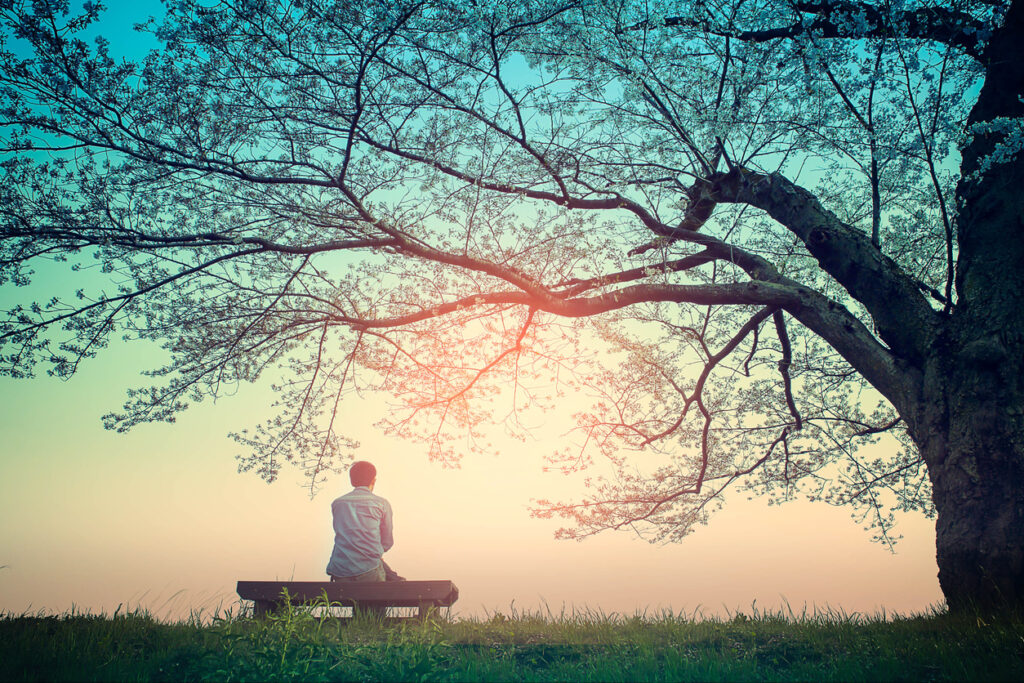In part eight of this content series on how to become a mindful trainer, Kay Buckby, Facilitator at The Mindful Trainer, explains why it’s important for trainers to make time for rest – both physically and mentally.
Author Mokokoma Mokhonoana once said, “some people have compassion for even strangers, but not for their own bodies” – and this is particularly true of trainers, whose professional lives are devoted to improving other people.
I met with a fellow trainer recently and it was a surprise to see how very different she was to the last time I met with her a year ago. She interrupted me a lot, and seemed agitated with herself when she did this. Her eyes were strained, and she pulled at the skin around her fingers.
Finishing off a year-long project, working two hours for every one hour charged, and the constant worry due to high standards set she set for herself had taken their toll on her.
Most small businesses live the boom and bust cycle of work. On top of this, project management, and facilitation of complex programmes requires a huge amount of emotional, physical and mental energy.
Trainers are givers, and people can happily take it from us. Travel takes it out of us. Client demands take it out of us.
She was now concerned about the future, with an empty (ish) diary staring back at her. Her thoughts were confused, and racing.
To me as an observer, it was like her body and mind were behaving like a large cat, pacing up and down a cage in a zoo.
Physically, she was upset that her gym routine had slipped during this time – a sacrifice she’d made for the client work.
Emotionally, she was drained by such a huge project. The feedback had been great, but she was chewing over the minor negative feedback she had received.
Spiritually, she’d neglected herself.
I’ve seen it many times before. It was trainer burnout.
Facilitators can often become burned out
In 2009-2010 I won a huge contract that involved ten modular programmes for 80 people, involving assignments, coaching, pre and post work, and lots of travel away from home.
I realised sometime after the contract finished that I was completely burned out. A spa day wasn’t going to fix it. I needed to start daily rest.
We live in a busy world where everyone is constantly ‘doing’. My work ethic was ingrained into me from a young age – both my parents and my siblings worked hard.
Rest days were rare – I remember beach days on holiday filled with playing beach cricket, badminton and swimming. We rarely rested with our heads in a book, or lazily gazed at the world going by.
As facilitators, we are drawn to the profession because of our need to give. Sometimes that need to give can exclude giving to ourselves.
I realised I had a tendency to drive myself to do more – filling my life with more activities, more hobbies, and more self-pressures. I was always ‘doing, doing, doing’.
I somehow thought that doing more would calm my agitation, my inner desire to feel more fulfilled.
Recognising the tendency to see resting as wasting time, or laziness, was vital for me to start to change.
Small changes that make a difference
Resting is now something I do every day.
The sheer joy of resting on a park bench, and attuning to the environment around me, is like a recharge cable for my body and mind.
Sometimes I do phrase-led meditation, repeating things to myself such as:
- Breathing in, I am here
- Breathing out, I have arrived
- Breathing in, I allow this moment to arrive
- Breathing out, I allow my body this chance to rest
I find a safe place to rest. It may be a favourite chair by a window, a grassy bank under a tree, or a mossy riverbank. It is a place I can settle, rest, and be.
I was working in London not long ago. Before the day started, I found a small park, and rested, seated on a park bench opposite a statue of Mahatma Gandhi.
I have found I can be kinder to myself, and therefore kinder to the world around me, when I build in time for rest.
Waiting for a delayed train, I sat alone in a charming waiting room, complete with Victorian fireplace and tiles. Working on a business park, I rested by a huge cedar tree during a lunch break.
The practice of resting, and allowing sounds, sights and smells to come to my body as I rest into my breath gives me the energy that I need to provide for others.
When body and mind connect, we energise ourselves.
As facilitators, we are drawn to the profession because of our need to give. Sometimes that need to give can exclude giving to ourselves – to the extent that we are tired, agitated or burned out.
I have found I can be kinder to myself, and therefore kinder to the world around me, when I build in time for rest.
What can you do to rest, and allow body and mind to connect once more?
I look forward to hearing how this lands with you.
In part eight of this content series on how to become a mindful trainer, Kay Buckby, Facilitator at The Mindful Trainer, explains why it’s important for trainers to make time for rest – both physically and mentally.
Author Mokokoma Mokhonoana once said, “some people have compassion for even strangers, but not for their own bodies” – and this is particularly true of trainers, whose professional lives are devoted to improving other people.
I met with a fellow trainer recently and it was a surprise to see how very different she was to the last time I met with her a year ago. She interrupted me a lot, and seemed agitated with herself when she did this. Her eyes were strained, and she pulled at the skin around her fingers.
Finishing off a year-long project, working two hours for every one hour charged, and the constant worry due to high standards set she set for herself had taken their toll on her.
Most small businesses live the boom and bust cycle of work. On top of this, project management, and facilitation of complex programmes requires a huge amount of emotional, physical and mental energy.
Trainers are givers, and people can happily take it from us. Travel takes it out of us. Client demands take it out of us.
She was now concerned about the future, with an empty (ish) diary staring back at her. Her thoughts were confused, and racing.
To me as an observer, it was like her body and mind were behaving like a large cat, pacing up and down a cage in a zoo.
Physically, she was upset that her gym routine had slipped during this time - a sacrifice she’d made for the client work.
Emotionally, she was drained by such a huge project. The feedback had been great, but she was chewing over the minor negative feedback she had received.
Spiritually, she’d neglected herself.
I’ve seen it many times before. It was trainer burnout.
Facilitators can often become burned out
In 2009-2010 I won a huge contract that involved ten modular programmes for 80 people, involving assignments, coaching, pre and post work, and lots of travel away from home.
I realised sometime after the contract finished that I was completely burned out. A spa day wasn’t going to fix it. I needed to start daily rest.
We live in a busy world where everyone is constantly ‘doing’. My work ethic was ingrained into me from a young age – both my parents and my siblings worked hard.
Rest days were rare – I remember beach days on holiday filled with playing beach cricket, badminton and swimming. We rarely rested with our heads in a book, or lazily gazed at the world going by.
As facilitators, we are drawn to the profession because of our need to give. Sometimes that need to give can exclude giving to ourselves.
I realised I had a tendency to drive myself to do more – filling my life with more activities, more hobbies, and more self-pressures. I was always ‘doing, doing, doing’.
I somehow thought that doing more would calm my agitation, my inner desire to feel more fulfilled.
Recognising the tendency to see resting as wasting time, or laziness, was vital for me to start to change.
Small changes that make a difference
Resting is now something I do every day.
The sheer joy of resting on a park bench, and attuning to the environment around me, is like a recharge cable for my body and mind.
Sometimes I do phrase-led meditation, repeating things to myself such as:
- Breathing in, I am here
- Breathing out, I have arrived
- Breathing in, I allow this moment to arrive
- Breathing out, I allow my body this chance to rest
I find a safe place to rest. It may be a favourite chair by a window, a grassy bank under a tree, or a mossy riverbank. It is a place I can settle, rest, and be.
I was working in London not long ago. Before the day started, I found a small park, and rested, seated on a park bench opposite a statue of Mahatma Gandhi.
I have found I can be kinder to myself, and therefore kinder to the world around me, when I build in time for rest.
Waiting for a delayed train, I sat alone in a charming waiting room, complete with Victorian fireplace and tiles. Working on a business park, I rested by a huge cedar tree during a lunch break.
The practice of resting, and allowing sounds, sights and smells to come to my body as I rest into my breath gives me the energy that I need to provide for others.
When body and mind connect, we energise ourselves.
As facilitators, we are drawn to the profession because of our need to give. Sometimes that need to give can exclude giving to ourselves - to the extent that we are tired, agitated or burned out.
I have found I can be kinder to myself, and therefore kinder to the world around me, when I build in time for rest.
What can you do to rest, and allow body and mind to connect once more?
I look forward to hearing how this lands with you.





